The past month has been a great one for the fantasy electric vehicle league. Sony, Fisker, and others "Launched or "Released" or "Revealed" or "Debuted" new electric vehicles if the gasping auto press is to be believed. Look deeply at these green marvels and you will quickly discover that they are one-off show cars. You can't buy one. There is no real car. One way to be sure is to ask, "Where are you building them?" That leads to a long discussion about "possible sites." It takes half a decade to build a factory that will produce a vehicle in volume. Minimum.

Toyota, by contrast, reveals its green vehicles to the press in America as models with a reliable delivery date, if they are not already in production. This week, Toyota updated its production facility location for one of the top-selling green vehicles in America, and the top-selling affordable green crossover in America, the RAV4 Hybrid.
Toyota has been building the top-selling RAV4 Hybrid at TMMC (Toyota Motor Manufacturing Canada) based in Cambridge, Ontario. This week, Toyota began to produce the RAV4 Hybrid at Toyota Motor Manufacturing Kentucky (TMMK). With the addition of the RAV4 Hybrid to its production lines, TMMK now produces four electrified vehicles, including the Avalon Hybrid, Camry Hybrid and Lexus ES 300h.
Related Story: The top-Selling Affordable Green Vehicle In America Is Toyota's RAV4 Hybrid
Toyota isn't stopping the production of the RAV4 Hybrid in Ontario. Rather, it is adding a second North American manufacturing plant to keep up with a tsunami of consumer demand. In 2019, the RAV4 Hybrid had its best sales year to date, up 92.3 percent.
“We are excited to see the past nine months of preparation come to life with the completion of our first Kentucky-built 2020 RAV4 Hybrid,” said TMMK President Susan Elkington. “This milestone would not have been possible without the hard work of our dedicated team members and our recent investments. We are proud to offer an alternative powertrain for each of the products we currently build and couldn’t be happier to add the popular RAV4 Hybrid to that list.”
Toyota plans to offer an electrified option (hybrid, plug-in, fuel cell, battery) on all Toyota and Lexus models by 2025. Currently, Toyota sells more alternative powertrain vehicles than the rest of the industry combined, with sales reaching around 13 percent of volume in the U.S.
In 2019, Toyota built 1,619,622 vehicles in North America. 68% of the total that it sold in this market. Toyota has 14 manufacturing plants North America (10 in the U.S.), 15 including the company's joint venture in Alabama, and directly employs more than 36,000 workers in the U.S.
John Goreham is a life-long car nut and recovering engineer. John's focus areas are technology, safety, and green vehicles. In the 1990s, he was part of a team that built a solar-electric vehicle from scratch. His was the role of battery thermal control designer. For 20 years he applied his engineering and sales talents in the high tech world and published numerous articles in technical journals such as Chemical Processing Magazine. In 2008 he retired from that career and dedicated himself to chasing his dream of being an auto writer. In addition to Torque News, John's work has appeared in print in dozens of American newspapers and he provides reviews to many vehicle shopping sites. You can follow John on Twitter, and connect with him at Linkedin. The most of John's articles are found at Torque News Toyota coverage. Check back again and search for Torque News Toyota news for more Toyota news coverage.
Set Torque News as Preferred Source on Google


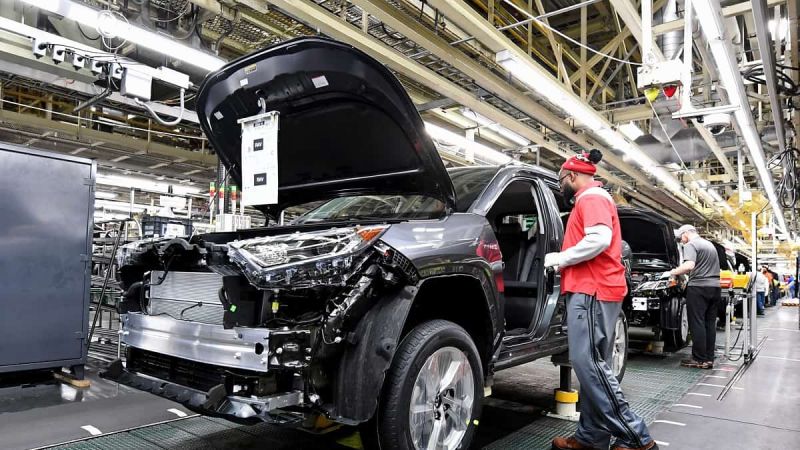




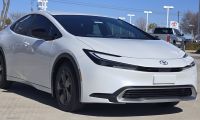
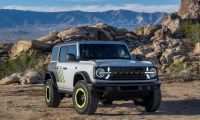
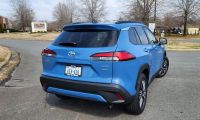
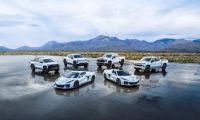
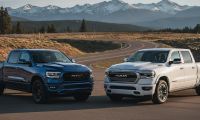
Comments
Sony was clear from the
Permalink
Sony was clear from the beginning that this new car was designed specifically as a showcase for automotive technologies. And seeing how technologically advanced that modern automobiles are becoming, with integrated communications, navigation and internet connection, advanced self driving and safety systems, lighting and climate control systems, and drivetrain control systems, this move makes sense. Google and Apple have been testing and demonstrating cars and automotive technologies for years now, but actual production is uncertain. Karma Automotive may or may not survive to produce new models. Chinese Wanxiang Group bought Fisker's assets with plans to restart the company, and they just showed off an improved Revero GTS and SC2 electric supercar concept in 2019/2020, but with more capable, faster, and more well known EV rivals like Tesla's Plaid Model S and Porsche's Taycan Turbo, it is a tough market to compete in. Toyota is not really competing against these concepts, they are putting their best foot forward to compete against gas-only models, and of course some upcoming BEV models from Tesla and Ford's Mach E, existing BEV rivals of Chevy (Bolt) and Hyundai, plus several new hybrid models from Honda, Ford and others. My only suggestions are to quickly move the Prius line to a mix of hybrids, PHEVs and some BEV models, and expand their model lineup to include more Prime PHEV models like the upcoming RAV4 Prime.